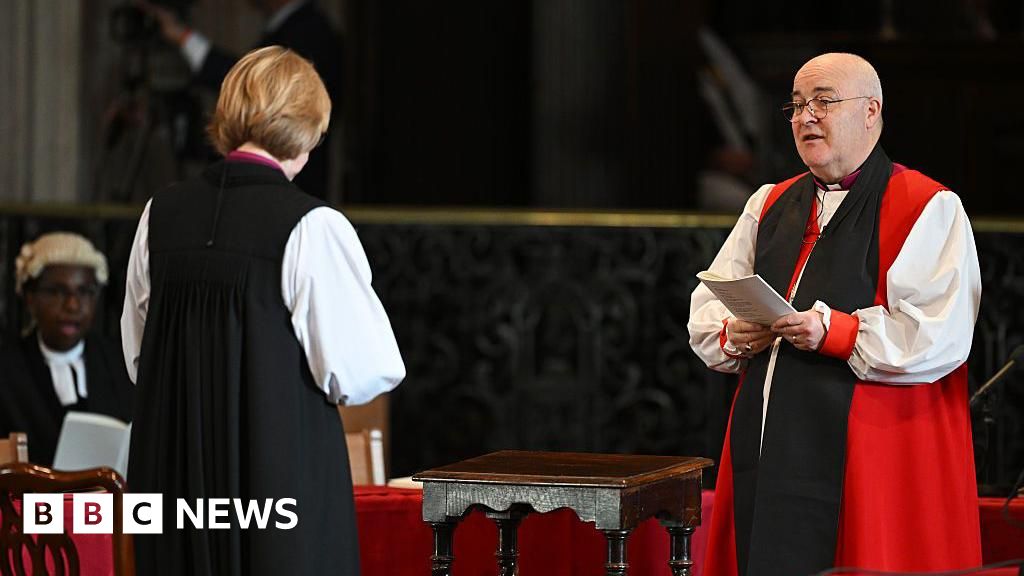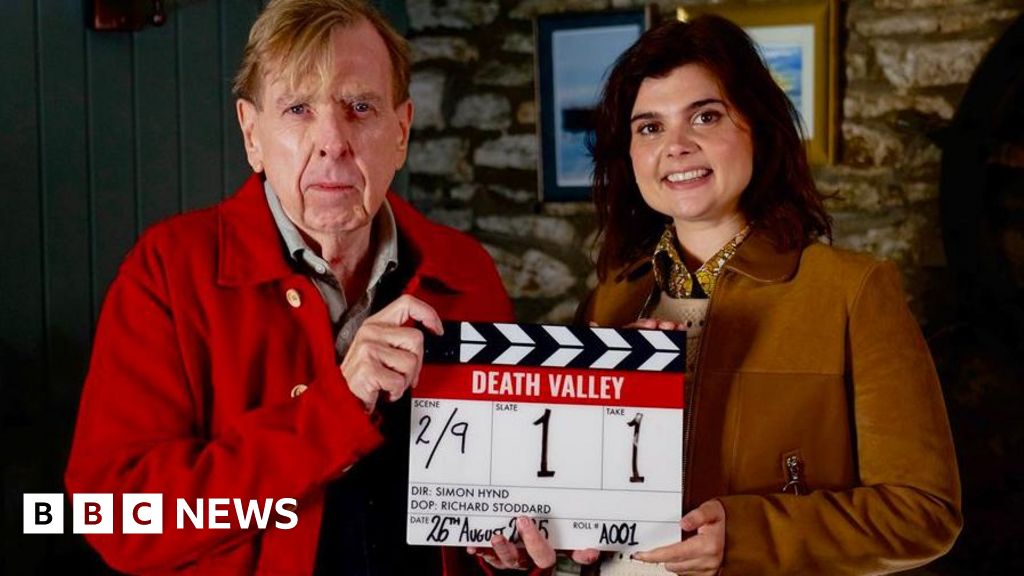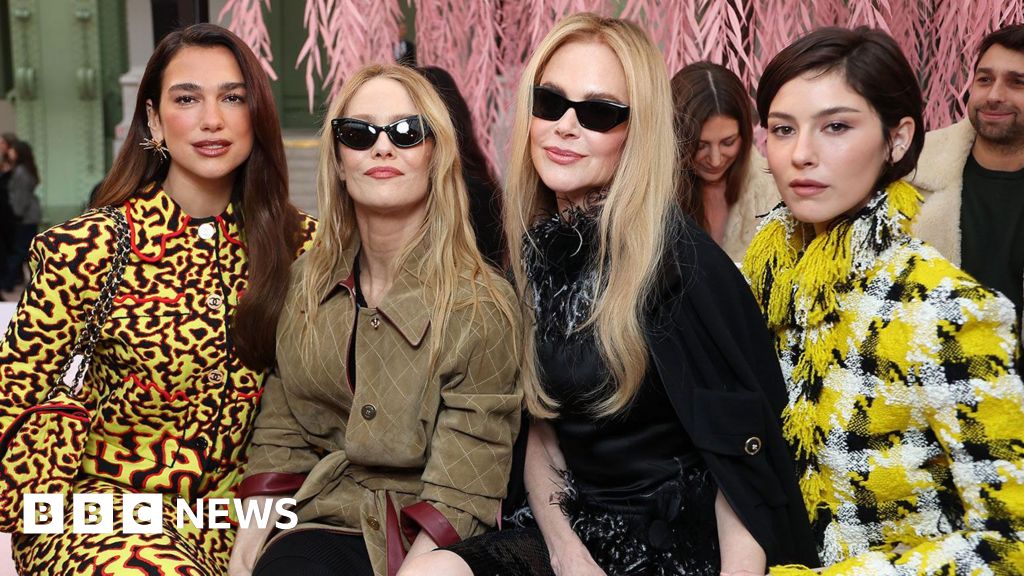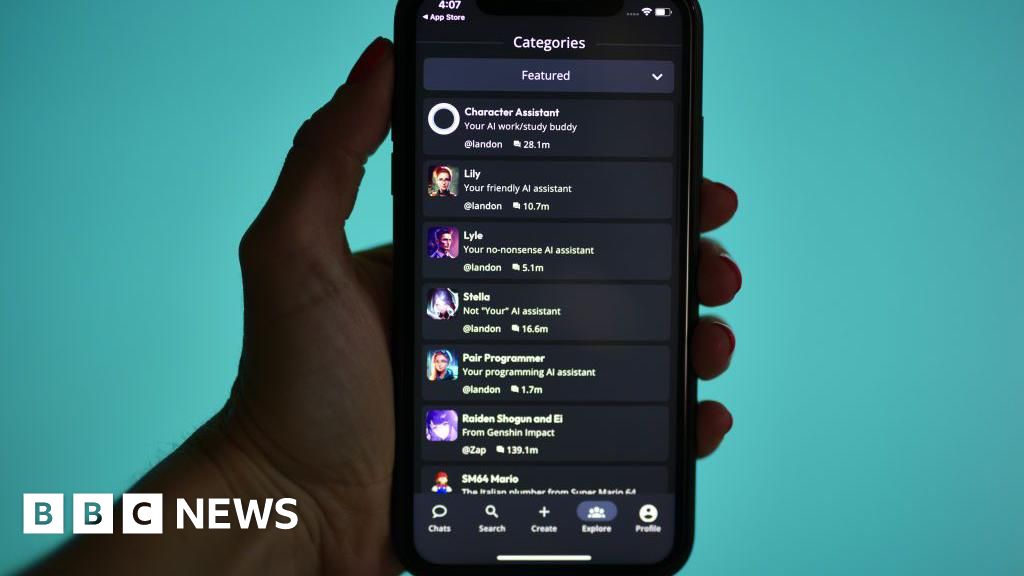Mark SavageMusic correspondent

 Getty Images
Getty Images
Rosalía emerged in 2018 and has become one of the biggest Latin stars in music
Over her brief discography, Rosalía has never met a convention she couldn't break.
Born in Barcelona, the singer has spent the last seven years innovating at a speed that makes her contemporaries look comically lazy.
Her breakthrough album, El Mal Querer (recorded as her graduate thesis in 2018) took the folkloric traditions of Flamenco and fused them to addictive R&B rhythms.
The follow-up, 2022's Motomami, was a wildly innovative pop smash, twisting Latin American genres like cumbia and reggaeton around glitchy hip-hop beats and her playful, sinuous melodies.
With lyrics about fame, sex and self-discovery, Motomami debuted at the top of Spotify's global albums chart, took home album of the year at the Latin Grammys, and became 2022's best-reviewed record on Metacritic - even topping Beyoncé's celebrated Renaissance.
After Rosalía's tour for her critically acclaimed album ended three year ago, her fans were left wondering where she'd go next.
The answer is revealed on her fourth album, Lux, released on Friday.

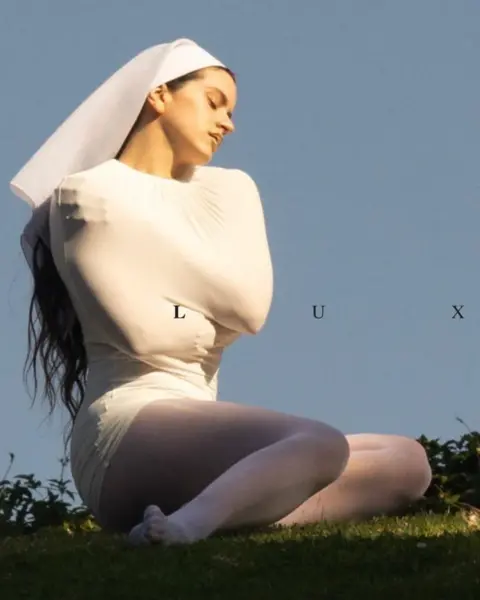 Rosalía/Columbia Records
Rosalía/Columbia Records
The album cover shows Rosalía hugging herself while wearing a nun's headdress, reflecting themes of self-acceptance and spiritual yearning
Rather than walk in the footsteps of its predecessors, Lux carves its own, unique path - harnessing Rosalía's classical training at the prestigious Catalonia College of Music.
Recorded with the London Symphony Orchestra, and featuring multiple arrangements from Pulitzer Prize winner Caroline Shaw, it's a radical, rebellious operatic opus that sounds like nothing else in the pop sphere.
Lead single Berghain riffs on Verdi's Dies Irae, the strings played with serrated knives as a German chorus chants about fear and anger, until Bjork arrives to inform everyone, "the only way to save us is through divine intervention".
Another early highlight, Reliquia, chops and splices a chamber quartet into unrecognisable electronic patterns, as Rosalía reconciles herself to the idea that she loves too hard, and locates the beauty in that vulnerability.
"Take a piece of me, keep it for when I'm gone / I'll be your treasure, I am your relic."
Fellow pop iconoclast Madonna has already declared herself a fan, posting a message to Rosalía on Instagram, saying: "I can't stop listening! You are a true visionary!!!"
'Emotional terrorist'
Pieced together over three years, Lux reflects on a period of personal and professional upheaval for the 33-year-old.
In that time, Rosalía broke off her engagement to Puerto Rican reggaetón star Rauw Alejandro, ditched her management in favour of Adele's manager, Jonathan Dickins, and landed her first major acting role in the teen drama Euphoria.
The split from Alejandro seems to inspire the record's most barbed lyric. La Perla is aimed at a man she calls an "emotional terrorist" and "the Olympic gold medallist of sons of whores" – with a jaunty waltz arrangement that suggests she's thoroughly enjoying her litany of insults.
The cathartic Focu 'Ranni (only available on CD and vinyl copies) pairs a desolate melody with a scrambled vocal sample; reflecting the emotional turmoil of a bride who calls off her wedding at the last moment.
In an interview with France's Le Monde, she said the song was inspired by her namesake, Saint Rosalia de Palermo, who fled the altar to dedicate her life to God.
"I found that coincidence pretty insane," the star added, but refused to elaborate, simply saying it was a "long story".

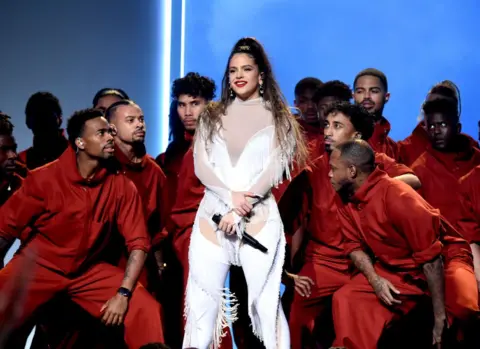 Getty Images
Getty Images
The singer's tour for her album Motomami featured a minimalist stage and backing dancers
The quest for spiritual fulfilment underscores the rest of Lux – whose title is the Latin word for "light".
Sauvignon Blanc is a gossamer ballad that contains the self-deprecating pledge: "I will listen to my God / I will throw away my Jimmy Choos"; while the dazzling dopamine rush of Divinize finds her, in the word of Loki, burdened with glorious purpose.
"Bruise me up, I'll eat all of my pride / I know that I was made to divinize."
But it's the more reflective moments that steal your breath. The closing track, Magnolias, is a delicate acceptance of death: "What I never did in my life, you'll do when I'm dead."
And the tender, subdued La Yagular is an acknowledgement of the divine on earth that celebrates our shared humanity.
"I fit in the world / And the world fits into me / I take up the world / And the world occupies me," she sings, in wide-eyed wonder.
The song ends with a recording of Patti Smith in 1976, encouraging artists to shatter expectations.
"Break on through to the other side," the rock star exclaimed. "Going through one door isn't enough, a million doors aren't enough."
As an encapsulation of Rosalía's creative impulse, it's almost too perfect.

 Rosalía/Columbia Records
Rosalía/Columbia Records
Rosalía studied 14 languages including Hebrew, Ukrainian and French during the creation of the latest album
Ahead of the album's release, the singer advised fans to play Lux on headphones in a darkened room, calling it an antidote to TikTok trends and viral videos.
"The more we are in the era of dopamine, the more I want the opposite," she told the New York Times. "I know it's a lot to ask, but that's what I want."
Anyone who takes up the challenge will be richly rewarded.
Despite its grand orchestral sweep, Lux is a thoroughly modern album, with cutting edge production and hip-hop phrasing sneaking into Rosalía's stunning, operatic vocals.
A lesser artist might have been crushed by its conceptual weight – singing in 14 languages, over four movements, inspired by the mystical writings of French philosopher Simone Weil – but somehow she avoids the trap.
Lux is audacious but it's also accessible. Turn off the lights, give it your full attention, and discover one of the most singular, original artists of our time.

 2 months ago
64
2 months ago
64








